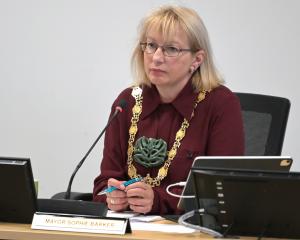Fonterra was once lauded as the golden child of New Zealand's primary industries.
Created in 2001 from a merger of two major dairy co-operatives, Kiwi Co-operative Dairies and the New Zealand Dairy Group, with the New Zealand Dairy Board, it was heralded as a ''breakthrough idea'' with founding chairman John Roadley describing it as ''potentially better than an oil well''.
Over the years, the country's, at times beleaguered, red meat sector was told it should embrace the ''Fonterra model''; rather ironically now, the red meat industry resembles what the dairy industry has become - rather than just one player, there are a host of other smaller - and successful - companies.
But now Fonterra is undeniably in trouble, resembling more of a Johnes Disease-stricken heifer than the cash cow. Earlier this week, New Zealand's largest company announced it would be reporting a loss of as much as $675 million next month.
It cited adjustments for its South American businesses, drought in Australia and heightened competition in New Zealand. In tandem, the co-operative's board announced no dividend would be paid for the financial year.
South Otago farmer Mat Korteweg - no doubt echoing the thoughts of Fonterra suppliers throughout the country - succinctly described it as a ''kick in the guts''.
Shane Jones might not be the farmer's friend after, earlier this year, saying farmers needed to stop ''bitching and moaning'', but the Regional Economic Development Minister had a point when he put the poor results squarely in the lap of Fonterra's management and board, specifically calling out the co-operative's former chief executive Theo Spierings.
Mr Spierings left last year, laughing all the way to the bank, having collected about $38 million in remuneration, including incentives and bonus payments during his seven-year stint at the top.
Unbelievably, he is now apparently in line for another payout under a historic incentive scheme. Surely, that must be something that needs to be urgently addressed. Also, 6000 staff were paid more than $100,000 a year last year - 750 more than in 2017, which again seems ridiculous given the company's grim performance.
Mr Spierings is long gone and it is now up to his replacement Miles Hurrell and chairman John Monaghan to steer the Fonterra juggernaut back on track.
The enormity of the task is not lost on either; earlier this week, Mr Hurrell said no stone was being left unturned in the work to turn the co-operative's performance around.
Meanwhile, the New Zealand Herald reports that industry insiders and market watchers say calls are heating up for Fonterra to be split up and a company, maybe listed, spun off it, open to outside capital investment to chase high-value product markets.
Much has been in the media recently about the rise of alternative proteins, whether ''peak cow'' has been reached in New Zealand, and the effects of dairy farming on the environment. But the reality is that agriculture really is still the backbone of this country and New Zealand needs a strong dairy industry.
Figures from DairyNZ show the dairy sector employed 46,000 workers across New Zealand in 2017-18, which accounted for 3.1% of total employment. The on-farm sector accounted for 34,000 of those jobs with the dairy processing sector a further 12,000 jobs.
The value of milk production to the Otago regional economy in that period was estimated at $700million, while that figure was $1.6billion for next-door neighbour Southland.
Independent research consultancy Market Economics estimated that for every dollar dairy farmers spend, an additional $1 of value-add is created across the country.
But if farmers are not spending - due to the flow-on effects from Fonterra's woeful performance - then communities, both rural and urban, will suffer.
Comments
New Zealanders have for years been paying seriously inflated prices for milk and cheese compared to Australians. Why? Because people have been subsidising a fat and lazy "cash cow" company which has been allowed to charge whatever they like and the public had to bear it.
Good, they are no longer a cash cow. Dairy farmers will only be profitable if they have can produce and sell at reasonable margins so some will move out of dairy. And the public may get some reprise from outlandish prices.












